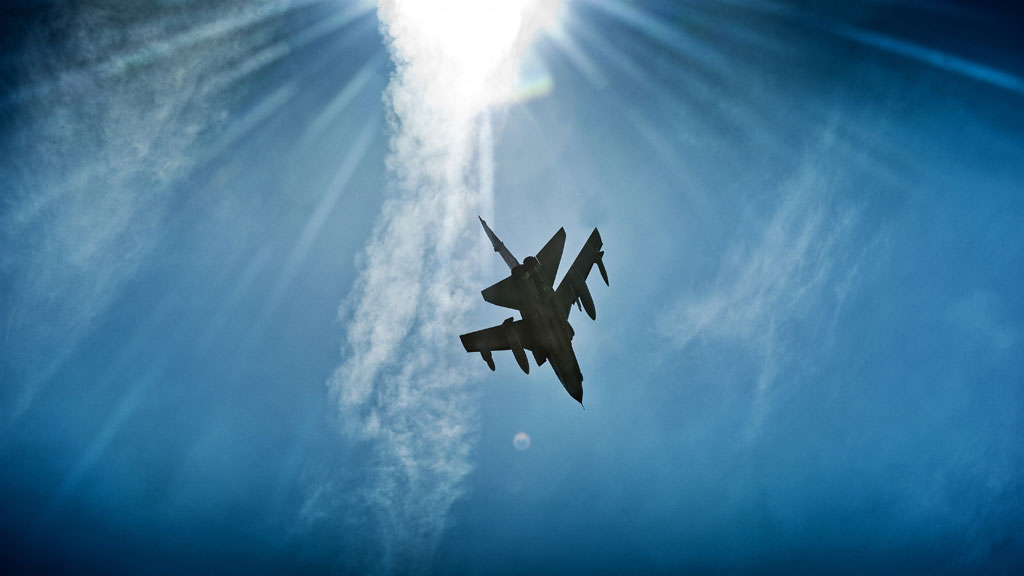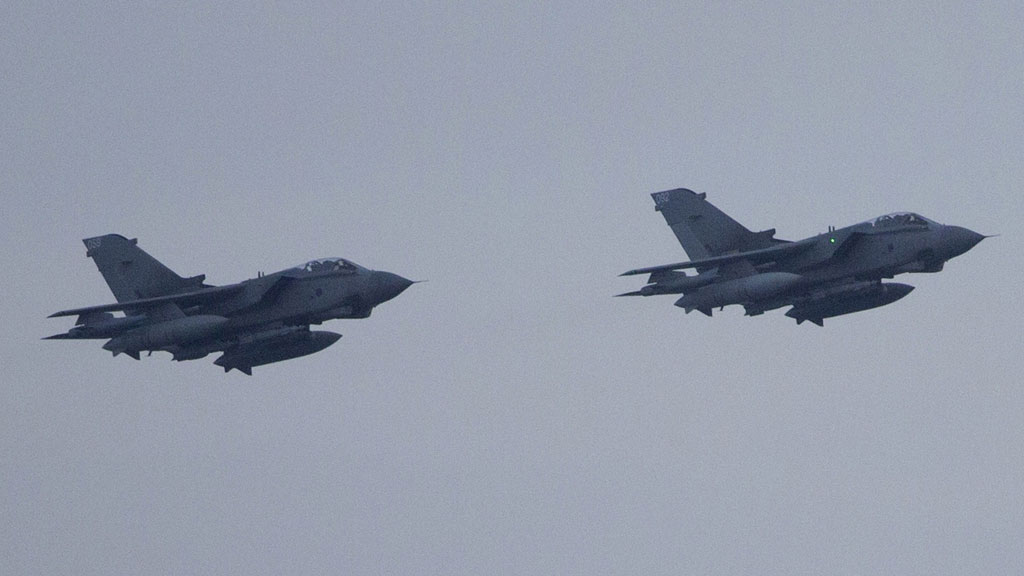Watch the missiles fall: British jets hit IS in Iraq
Channel 4 News witnesses RAF fighter jets carry out an air strike in Iraq as part of the US-led mission against the Islamic State group, as British forces ramp up their campaign.
After several missions without finding a suitable target, Britain’s RAF Tornados have now carried out further air strikes against the Islamic State (IS) group in Iraq as part of the US-led coalition mission.
Two Tornado GR4 aircraft took off from Akrotiri in Cyprus in support of Iraqi government forces west of Baghdad, and overnight fired four Brimstone missiles in a “precision attack” against two IS vehicles, one of which was an armed pick-up truck, said the Ministry of Defence (MoD).
Further strikes were carried out later on Wednesday, one of which was filmed by Channel 4 News.
On 30 September two Tornados carried out their first strikes against IS after the House of Commons approved military action against Iraq on Friday.
In that strike, a Paveway IV guided bomb was dropped to hit a heavy weapons position manned by IS, while a Brimstone missile hit an armed pick-up truck, said the MoD.
Both strikes were described as “successful”, but no figures have been released on the number of IS fighters that may have been killed.

Tornados have been flying reconnaisance missions into Iraq since mid-August but their first air strikes marks Britain’s entry into the conflict against IS, joining European and Arab nations alongside the US, which has also targeted IS inside Syria.
Questions have been raised over the size of the UK’s contribution to the conflict, with six Tornado aircraft on offer compared to the seven fighters made available by Denmark.
On Tuesday the coalition took part in a total of 22 attacks against IS targets, 11 in Iraq and 11 in Syria.
Air strikes against IS in Iraq have been requested by the Iraqi government, offering one of the main legal justifications offered by Mr Cameron in proposing military action against IS.
US strikes on IS in Syria have taken place without explicit permission from President Bashar al-Assad’s government, resulting in an uneasy stand-off since Syrian air defences are more advanced than those faced by coalition forces during Libyan operations in 2011.

The House of Commons did not approve the extension of UK operations into Syria, although the govermment has indicated it might review this position.
Foreign Secretary Philip Hammond said UK forces would not be “panicked” into carrying out air strikes in Iraq against IS, also known as Isil.
“When we do release our weapons we have to be absolutely sure that they are against Isil targets, that they are not going to kill innocent Sunni Muslim civilians in areas that are occupied by Isil,” he told the BBC.
“Otherwise we are having the opposite of the effect we are intending to have.”